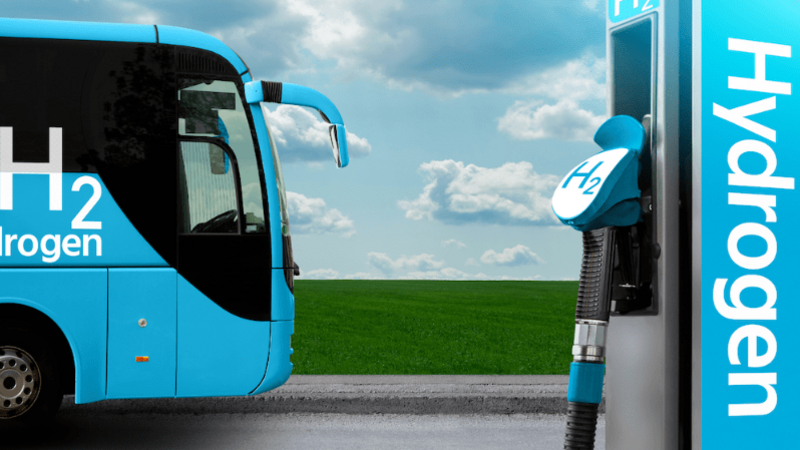Connecting...
Can Hydrogen Fuel Revolutionise Manufacturing, Heating and Transport?
about 4 years ago

Hydrogen may have been cast aside in favour of electric as an option for cars but a move by JCB to invest heavily in the technology could fast track its progress as an alternative energy source for heavy industrial settings, transport and heating.
JCB believes hydrogen is the answer for many sectors of the economy, including big diggers which it says would need a battery weighing five tonnes if they were to run on electricity. Hydrogen on the other hand, is light and refuelling takes just minutes. JCB’s owner, the Bamford family, is also looking at hydrogen for its Wrightbus company, which built the world's first hydrogen double decker.
How realistic is hydrogen as an energy alternative?
The challenge is that there is very little hydrogen available and, as we reported in our blog What is heat electrification and is it realistic, less than 5% of hydrogen currently comes from renewable sources.
However, JCB is taking the lead and has recently invested in green hydrogen, produced using renewable energy, from Australian firm FFI. The move will see FFI become the UK's largest supplier of the clean fuel, with production expected to begin early next year. Hydrogen would be largely manufactured outside the UK and then distributed here by JCB and Ryze Hydrogen.
Hydrogen and heavy industry
JCB Chairman Lord Bamford said the deal would make green hydrogen viable as a potential replacement for fossil fuels in heavy industries such as shipping, steel and cement making.
Lord Bamford is now calling on the government to invest in hydrogen-fuelled buses, trains and aircraft to support clean energy powered transport infrastructure .
Business Secretary Kwasi Kwarteng has said the UK’s "infrastructure and technical know-how make us ideally positioned to be a global leader in hydrogen" although admits there is a long way to go.
Hydrogen clearly has the potential to support heavy transport and industry towards net zero ambitions and significant investment has gone into testing and developing infrastructure for hydrogen heat and gas production in both the UK and EU. You may be interested in our previous blog How the Hydrogen Strategy can support the UK’s net zero goals.
Green hydrogen
The government’s goal is to achieve 5 gigawatts of production capacity by 2030. However, RenewableUK has raised concerns that the government’s plan doesn’t focus enough on developing green hydrogen, relying too much on production that uses natural gas rather than renewable energy.
The JCB deal will bring green hydrogen from Australia and some analysts believe this could fast track the technology by making it commercially viable much sooner.
Trade deals such as this, and the ambition of entrepreneurs like Lord Bamford’s son, Jo Bamford (founder of Ryze Hydrogen, which is building a network of green hydrogen production plants in the UK), could see the country’s goals of becoming a leader in green hydrogen energy for manufacturing, construction, heating and transport much more realistic and achievable.
